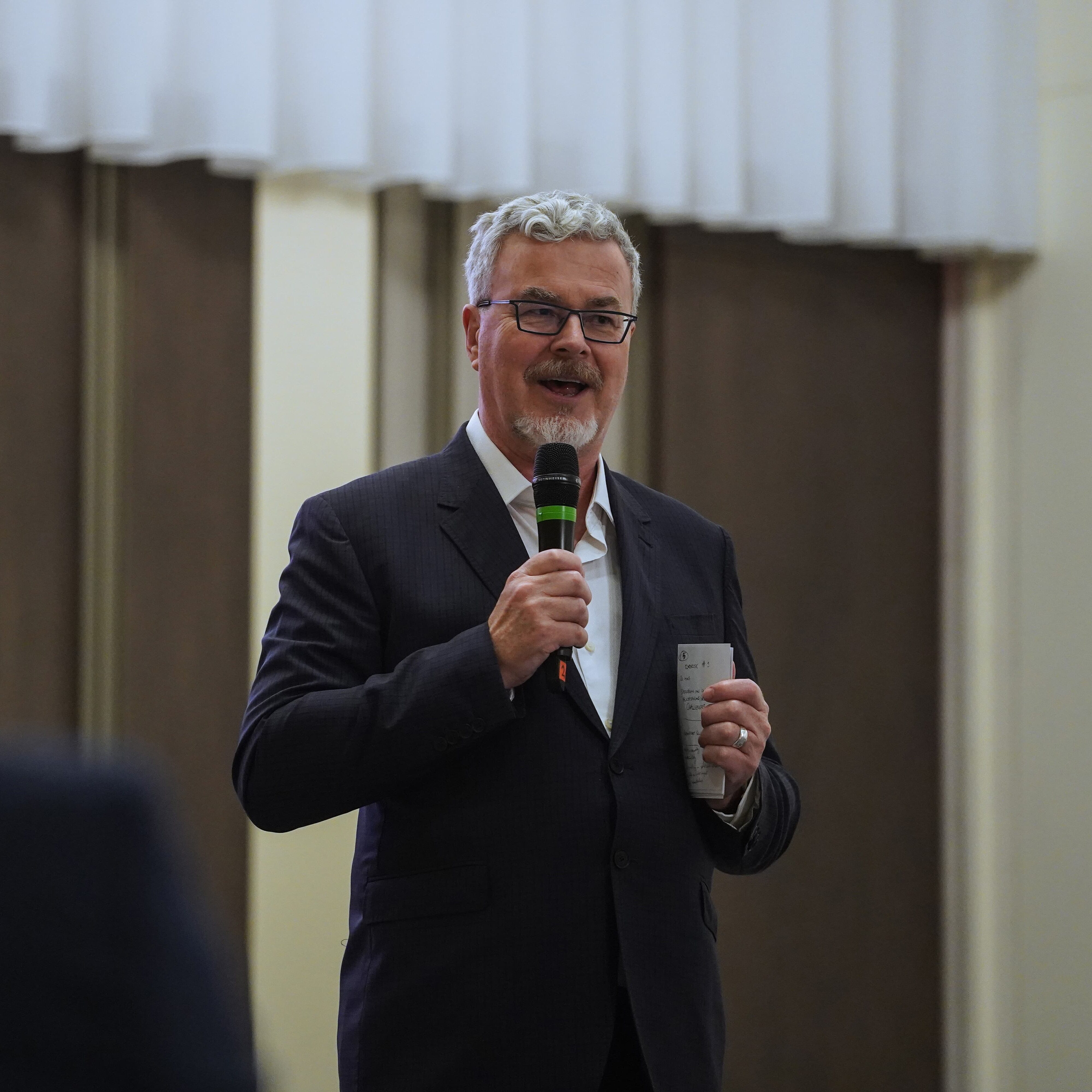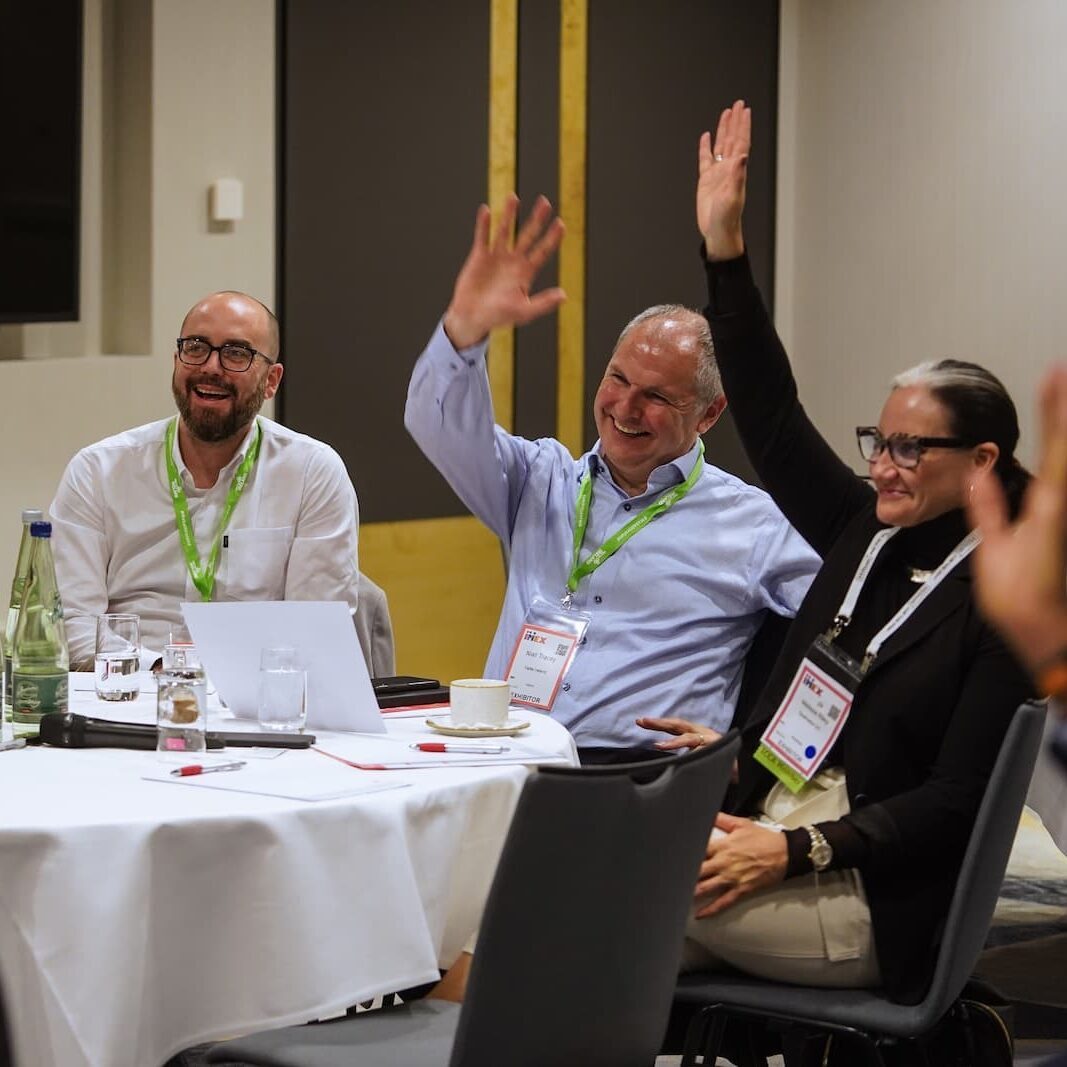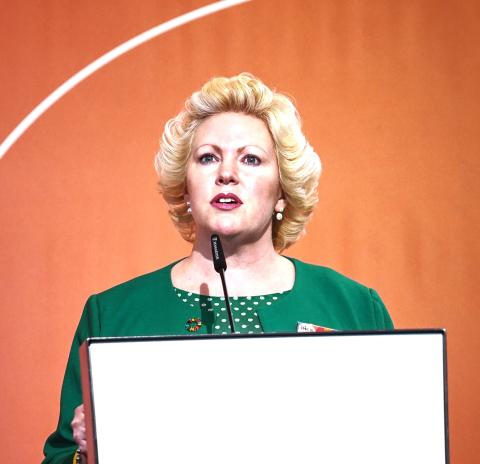Advocacy 101 in the meetings and events industry
At IMEX our sole aim is to unite and advance the meetings industry – doing everything we can to educate, innovate and help you make powerful connections with the right people. We wholeheartedly love this industry. We feel committed – and honored – to serve it, while also feeling duty-bound to support its (healthy) growth in any way we can.

What does advocacy mean at IMEX?
To us, advocacy means being crystal clear in our communications about the positive impact of the meetings and events industry; on the economy, local communities, local businesses and jobs, on collective knowledge, and the planet. When we consider that events happen over a single day, or maybe a few days, the inherent power that they must bring a legacy to the world shouldn’t be overlooked. The ripple-effect is always at play.
Why event planners should be advocates
So why should you personally care? The Joint Meeting Industry Council (JMIC) argues, “Meetings and business events are often among the first cuts made by businesses and governments. They are seen as a social exercise rather than […] a strategy for economic recovery”.
Of course, many events and meetings professionals are enormously proud of the work they do. And they are loud and proud about offsetting any misunderstandings about the importance and the extensive economic impact of events.
Our industry needs more people like YOU to communicate this impact and the wider benefits of the work we all do.
So, we’ve taken this chance to summarize some of the direct and indirect benefits of meetings and events. Think of this as a quick ‘ready-reckoner’ to share with your team, your new recruits, to keep as a briefing sheet prior to an interview or simply to read and digest to remind you of the importance and value of the industry you work in, and that we hope you love as much as we do.
What are the direct benefits of advocacy in meetings and events?

Meetings and events bring people together to achieve a set of outcomes
Whether the goal is collaboration, knowledge exchange or training, meetings and events are a reason for people to gather in one place and work together on these outcomes.
Attracting more meetings and events is a benefit of investing in infrastructure. The author has seen this happen first-hand in her hometown of Barry, Wales. The arrival of the ICC Wales was supplemented by a huge investment in Cardiff International Airport to improve its international connections and new roads are being built to improve connectivity between rural areas and cities. This not only benefits business travelers but the local community too.
The meetings and events industry supports employment
According to EIC’s Global Economic Significance of Business Events study, business events supported 10.3 million direct jobs globally in 2017. These jobs include employees on site at a hotel or other venue, and audio-visual and technical staff. Third-party service providers like entertainment, speakers and advertisers are also supported by the business events sector.

The meetings and events industry generates A LOT of direct spend
EIC’s study also found that in 2017 business events created more than $1.07 trillion in direct spending. This represents spending to plan and produce business events, business events-related travel, and other direct spending (EIC).
What are the indirect benefits in the meetings and events industry?
The meetings and events industry has a huge total economic impact
Business events supported a total global economic impact in 2017 of $1.5 trillion GDP. This includes indirect impacts, such as the energy used to power event venues, and induced impacts where employees spend their wages within the broader economy. Fun fact: The $1.5 trillion of total GDP would rank our industry as the 13th largest economy globally! (EIC).
Meetings and events are a key component of the knowledge economy
“It acts as a vehicle for business, professional and academic communities to achieve the interactions required to effect the knowledge transfer, collaboration and information dissemination” (JMIC). Meetings and events also provide opportunities for local communities to attract experts that can help them achieve their own economic, investment and social objectives.

The meetings and events industry actively promotes and disseminates sustainability initiatives
The meetings industry “has developed extensive procedures and guidelines to actively address these issues as they relate to its own activities” (JMIC). At IMEX we are committed to implementing best practice in event sustainability. We use our event as a platform to educate others on the sustainable steps they could be taking. On the theme of sustainability, meetings and events sometimes get a bad rap due when air travel is required. However, as Kai Hattendorf, CEO, UFI argues, “without exhibitions as meeting hubs for whole industries, the carbon footprint of business-related travel to reach comparable outcomes would be much, much higher” (EventMB.com).
IMEX is committed to driving change for our stakeholders and community
WE strive to engage policy makers and influencers to advocate for policies that will positively impact the meetings and events industry in all corners of the world. But this doesn’t happen in a vacuum, so, we created the IMEX Policy Forum to provide a platform for engagement between industry representatives and those who shape and influence policy.
A great friend of the Forum, Professor Greg Clark CBE, noted that the potential benefits of the meetings and events industry are currently limited by a “partnership gap” which exists between the industry and most local governments.
The Policy Forum was created to act as a catalyst to:
- Bring the meetings industry together with policy makers to influence policy rather than politicians
- Help shape the policies that will benefit cities and drive future urban development

Natasha Richards, Director of Impact at IMEX, speaking at Policy Forum
Cities all over the world are increasingly becoming powerful centers of wealth and influence. They are often governed in ways that mean they can act, change and evolve faster than central or regional government. Our experience shows that when city leaders “wake up” to the local economic potential of the meetings industry, positive support and policy change can follow very quickly.
Own the power of advocacy as an event professional
Meetings and events have power and influence that sometimes goes unrecognized. Now is the time to own it. YOU can be an advocate – help people recognize the impact and benefits of the meetings and events industry. In the words of our strategic partners, MPI, when we meet, we change the world.




